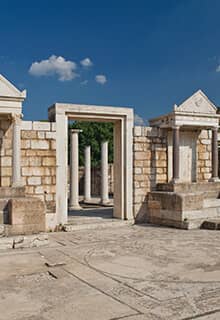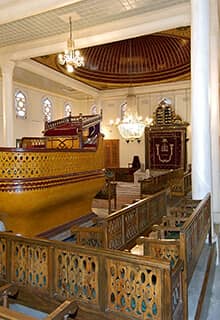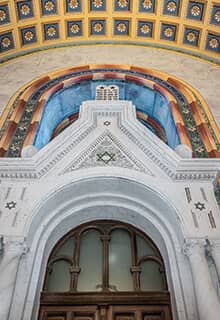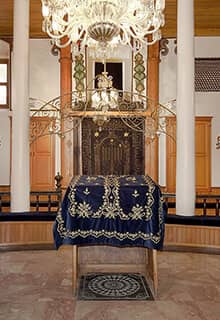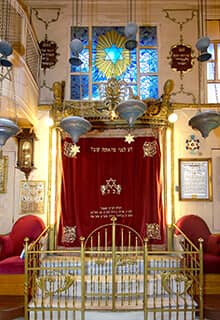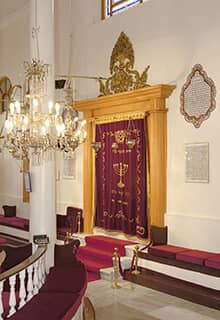

Jewish Heritage in Türkiye
İstanbul – Edirne – Bursa – Manisa – İzmir
The Jewish people have deep historical ties to Anatolia. The remains of Jewish settlements in ancient cities along the Aegean, Mediterranean, and Black Sea coasts, such as Sardes date back to as early as the 4th century BC. A bronze column found in Ankara shows the rights accorded to the Jews by Emperor Augustus. Throughout its reign, the Ottoman Empire became a welcoming place for Jews. In the early 14th century, a number of Jews expelled from Western Europe settled in Ottoman territory.
İstanbul had a vibrant Jewish community for more than 1,000 years and there are several synagogues both on the Asian and European sides of the city.
Neve Shalom Synagogue is the largest synagogue in Türkiye. Apart from Neve Shalom, Ahrida Synagogue and Yanbol Synagogue in Balat, Ashkenazi Synagogue in Karaköy, and Etz Ahayim Synagogue in Ortaköy are the most visited synagogues of İstanbul.
The Grand Synagogue of Edirne is a newly restored building erected in 1905. It was modelled on the famous Leopoldstädter Tempel, the largest synagogue of Vienna, and was intended to demonstrate the community’s achievements and modernity. The Grand Synagogue of Edirne was designed by the French architect France Depré in the architectural style of the Moorish Revival. The location of the new synagogue was the site of the ruined synagogues Mayor and Pulya in the neighborhood of Suriçi.
The Gerush Synagogue, Mayor Synagogue, and Etz Hayyim Synagogue can be found in Bursa.
İzmir (Smyrna)
The Jewish heritage of İzmir exhibits a unique character with its Sephardic traditions and the architectural styles of the synagogues which drew inspiration from medieval Spain.
The Sephardic synagogues of Kemeraltı are Bikur Holim, Beth Hillel, Seniora, Shalom, Algazi Synagogues & Beth Israel in Karataş.
Bergama Synagogue, the recently restored Yabets Synagogue in Bergama (Pergamon), was rededicated in a ceremony in the spring of 2014 for use as a cultural center. The synagogue is believed to have been built in the second half of the 19th century. It was abandoned after being seriously damaged in a fire in the 1940s that caused the roof to collapse.
Sardes Synagogue, a monumental synagogue, was the center of Jewish religious life in Sardis, in ancient Lydia, during the Late Roman period. The synagogue occupied the corner of the Roman bath-gymnasium, converting part of this public building into a Jewish house of worship. The majority of the current ruins date back to the 4th and 5th centuries.

